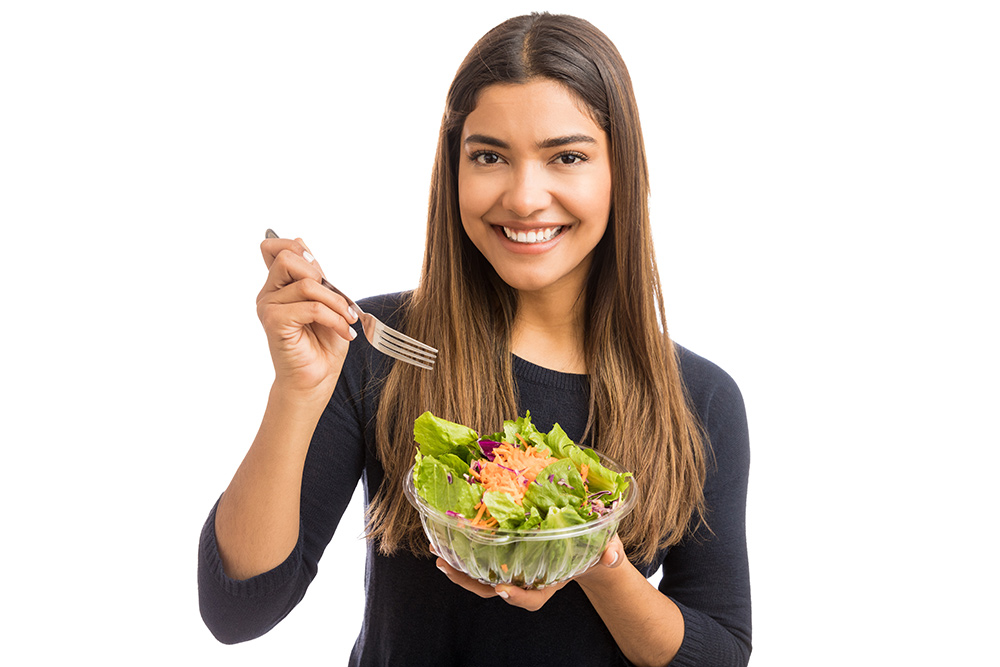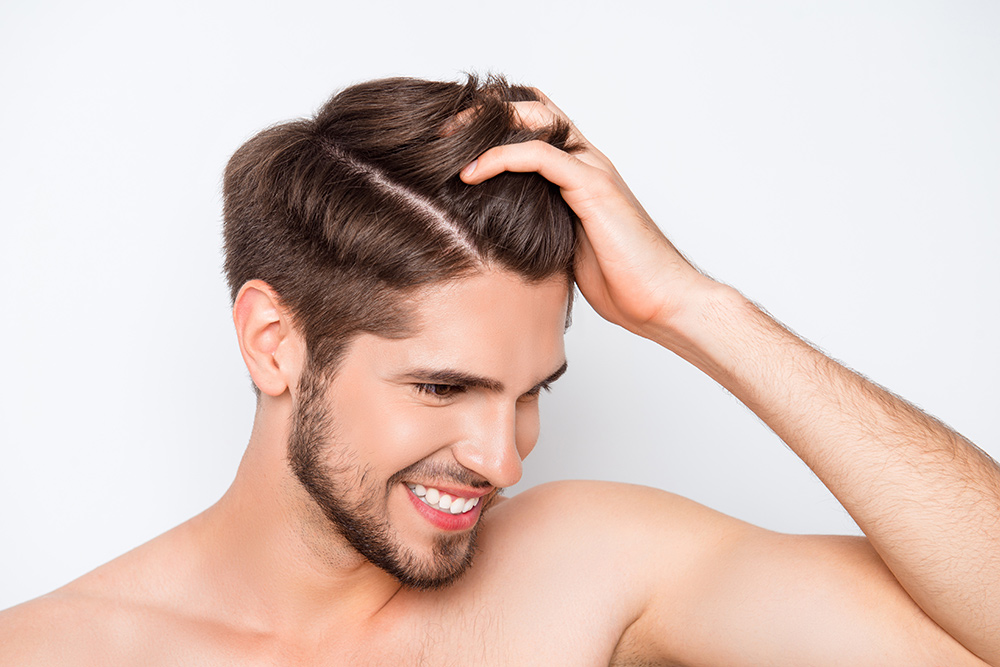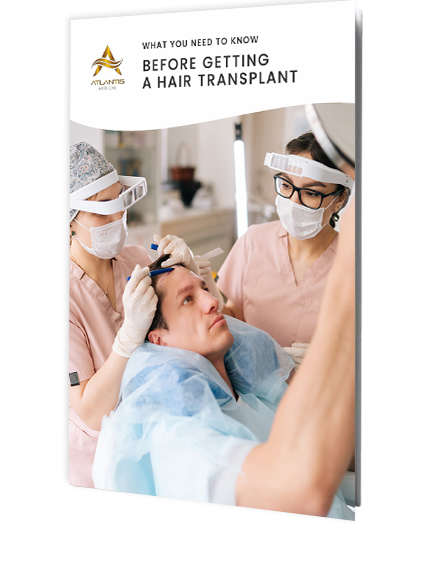Top 5 Foods to Help Prevent Hair Loss and Support Hair Health
- August 26, 2025
- Dr. Vikram Jayaprakash
Last updated on September 9, 2025
Table of Contents
ToggleDiscover the Best Foods to Help Prevent Hair Loss Naturally
Hair loss can occur for many reasons. Genetics, hormonal changes, medical conditions, stress and even daily habits can all contribute. While some factors are outside our control, others, like nutrition, can be addressed through simple lifestyle changes.
A healthy diet nourishes the body from within, delivering key nutrients that help maintain strong hair and a healthy scalp. In this blog, we share the top 5 foods that help prevent hair loss and support hair health, along with how they can work alongside other measures to encourage optimal growth.
The Link Between Nutrition and Hair Health
Hair is made mostly of protein, and the follicles that produce each strand are active tissues that require a constant supply of nutrients to function well. When the body lacks certain vitamins or minerals, the hair growth cycle can be disrupted, leading to shedding or brittle strands.
Nutrients that are particularly important for hair include:
- Protein – the structural building block of hair.
- Iron – carries oxygen to the scalp and follicles.
- Omega-3 fatty acids – help maintain scalp moisture and reduce inflammation.
- Zinc – supports tissue repair and cell function.
- Vitamins A, C, D and biotin – contribute to stronger strands and healthy follicles.
While no single food is a magic fix for hair loss, a diet rich in these nutrients can help create the conditions for hair to thrive.

Top 5 Foods to Prevent Hair Loss
Eggs
Eggs are a rich source of high-quality protein and biotin, two nutrients essential for keratin production. Keratin forms the main structural protein in hair, giving it strength and resilience. Adequate protein and biotin intake helps reduce breakage, supports growth and maintains the integrity of each strand.
Salmon
Salmon contains high levels of omega-3 fatty acids, which help nourish hair follicles and maintain a healthy scalp environment. It is also a natural source of vitamin D, a nutrient linked to follicle health and hair growth cycles. Together, these nutrients contribute to stronger, healthier hair.
Spinach
Spinach is packed with iron, folate and vitamins A and C — all important for healthy hair growth. Iron supports oxygen delivery to follicles, while vitamin C aids in iron absorption. Vitamin A helps produce sebum, the scalp’s natural oil, which keeps hair hydrated and protected.
Nuts and Seeds
Almonds, walnuts, flaxseeds and chia seeds offer a powerful combination of vitamin E and omega-3 fatty acids. Vitamin E acts as an antioxidant, helping to protect the scalp and follicles from oxidative stress. Omega-3s help maintain scalp hydration and support overall follicle function.
Sweet Potatoes
Sweet potatoes are high in beta-carotene, which the body converts into vitamin A. This nutrient plays a role in sebum production, keeping hair moisturised and preventing dryness. Adequate vitamin A intake also supports the turnover of hair follicle cells, which is important for a healthy growth cycle.

Other Lifestyle Tips for Healthy Hair
Good nutrition is just one piece of the puzzle. Your everyday habits also affect the strength, texture and appearance of your hair.
- Staying hydrated: Water helps maintain scalp health and nutrient delivery.
- Managing stress: Chronic stress can contribute to increased shedding.
- Avoiding excessive heat styling: Frequent use of straighteners and dryers can weaken hair over time.
- Gentle hair care: Use a mild shampoo and avoid aggressive brushing.
- Scalp care: Regular cleansing and gentle massage can help support circulation.
Treatments That Work Alongside a Healthy Diet
Even with the best nutrition and hair care habits, some causes of hair loss require targeted professional treatment. At Atlantis Medical, we provide a range of evidence-based, non-surgical options that can complement your healthy lifestyle. These may include low-level laser therapy, prescription topical treatments, or oral medications, recommended after a personalised assessment.
Combining a nutrient-rich diet with tailored in-clinic treatments helps address both the underlying cause and the visible effects of hair loss, offering a comprehensive approach to supporting hair health.
Final Thoughts
A balanced diet rich in the right nutrients can help support the health of your hair and scalp. While food alone can’t always prevent hair loss, it plays an important role in creating the best possible conditions for growth. If hair thinning or shedding is a concern, seeking professional advice ensures you have the right combination of dietary strategies and medical treatments to protect your hair long-term.
How to Book a Consultation
Booking your consultation is simple.
- Call us on (03) 9070 5234
- Contact us via our website
- Email us at enquiries@atlantismedical.com.au
- Or visit us at Level 2, 148 Glenferrie Road, Malvern, Vic 3144
Opening Hours
Mon – Fri: 8:30am – 5:00pm
Sat – Sun: Closed
Frequently Asked Questions
What are the best foods to prevent hair loss?
Foods rich in protein, iron, omega-3 fatty acids, zinc and essential vitamins can help support hair health. Examples include eggs, salmon, spinach, nuts, seeds and sweet potatoes.
How does diet affect hair loss prevention?
A balanced diet provides the nutrients needed for strong hair and a healthy scalp. Deficiencies in certain vitamins or minerals may contribute to hair thinning or increased shedding.
Can nutrient-rich foods stop hair shedding completely?
While nutrient-rich foods support the hair growth cycle, they may not address all causes of hair loss. Factors like genetics, hormones, or medical conditions may require professional treatment.
What foods help make hair thicker and stronger?
Protein-rich foods like eggs and omega-3 sources such as salmon help strengthen hair from the inside out. Vitamins A, C, D and biotin also play an important role in hair structure and resilience.
How long does it take to see results from a hair-healthy diet?
Hair growth is a slow process and noticeable changes can take several months. Consistency in eating nutrient-rich foods is key to supporting long-term results.
Should I see a specialist if hair loss continues despite a good diet?
Yes, ongoing hair loss despite a healthy diet may indicate an underlying issue. A hair loss specialist can assess the cause and recommend appropriate treatments.
Are there specific vitamins that help prevent hair loss?
Vitamins such as A, C, D and biotin contribute to healthy hair growth and scalp function. These are best obtained through a balanced diet rather than high-dose supplements unless advised by a healthcare professional.
Can a poor diet cause hair thinning?
Yes, prolonged nutrient deficiencies can weaken hair and disrupt the growth cycle. Inadequate protein, iron, or essential fatty acids are common dietary factors linked to thinning.
Any surgical or invasive procedure carries risks. Before proceeding, you should seek a second opinion from an appropriately qualified health practitioner.

About the Author
Dr. Vikram Jayaprakash
Dr. Vikram Jayaprakash is the Clinical Director of Atlantis Medical, one of Melbourne’s premier hair restoration clinics. Trained at the University of Southampton Medical School, he spent over a decade working alongside Dr. Russell Knudsen at the renowned Knudsen Clinic before establishing his own practice. As one of only three doctors in Australia to hold Board Certification from The American Board of Hair Restoration Surgery and one of two to attain Fellowship status with the International Society of Hair Restoration Surgery, Dr. Jayaprakash brings unparalleled expertise to every procedure.
Categories
Categories
- Female Hair Loss (5)
- General (3)
- Hair Health (3)
- Hair Loss (9)
- Hair Loss Treatment (7)
- Hair Transplant (18)
- Male Hair Loss (8)
- Non Surgical Treatments (1)
- Scalp Health (1)






